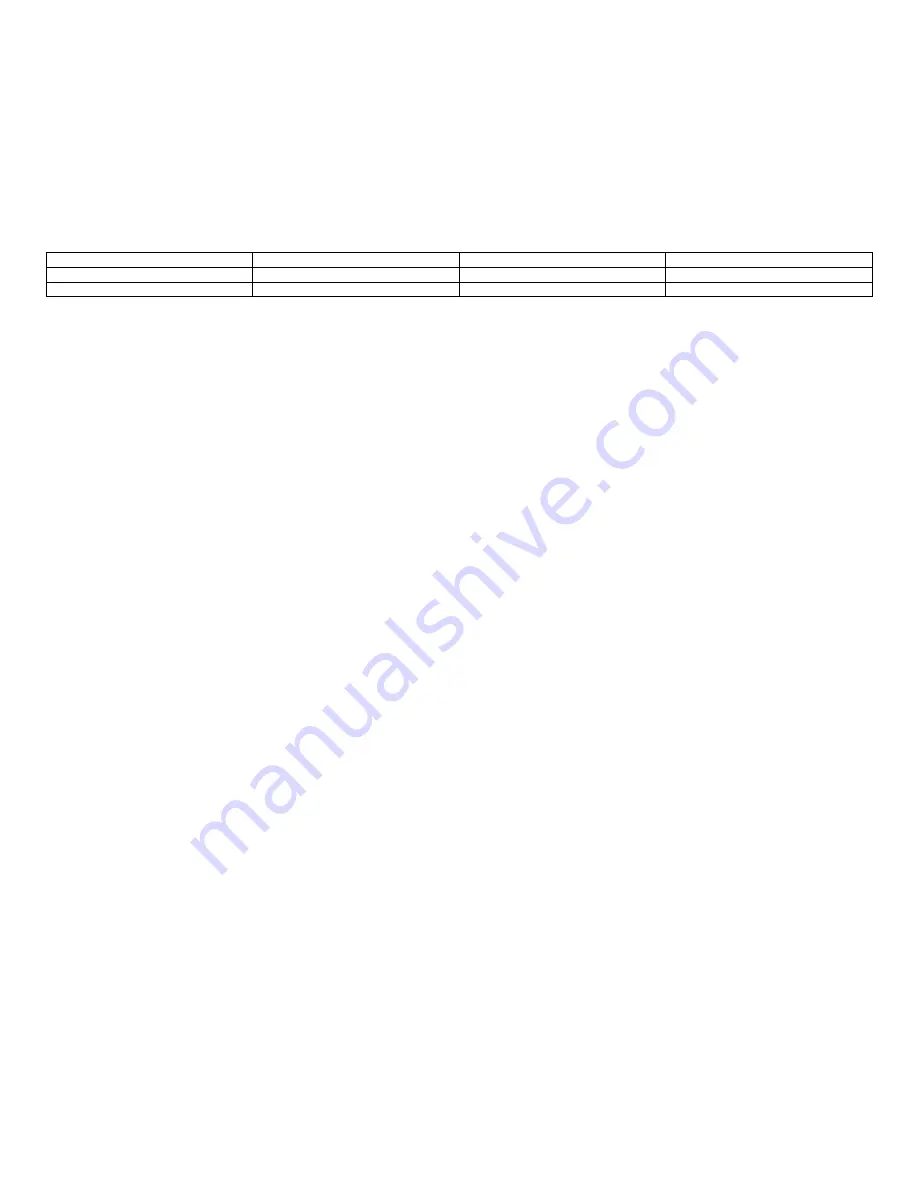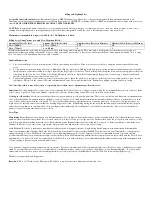
Filling and Lighting Stove
Acceptable fuels for Brasslite Stoves:
Pure methanol (such as HEET brand auto gas-line de-icer, or its generic equivalent), Ethanol/methanol mixture (a.k.a.
Denatured Alcohol sold in paint and hardware stores).
Note:
Isopropanol (i.e. ISO-HEET, or rubbing alcohol) is
NOT
recommended because it burns with a very sooty
flame.
USE OF OTHER FUELS BESIDES ALCOHOL VOIDS WARRANTY.
CAUTION:
In daylight the flame of an alcohol stove is virtually invisible. Unlike a white-gas or compressed-gas stove, there is no hissing sound to assure you it's
running. When lighting the stove in daylight it helps to have the windscreen partially around the stove so that the flame can be seen more easily.
Maximum recommended fuel capacity for Turbo F: 1 US fluid ounce (30 ml).
Filling Stove Using Custom 8 oz. and 16 oz. Dispenser Bottle: *
Amount Of Water To Boil
Amount Of Alcohol Needed
Number of 8oz. Reservoir Measures
Number of 16oz. Reservoir Measures
16 oz. (500 ml)
0.75 oz (22 ml) +
1 1/2
3/4
24 oz. (750 ml)
1 oz. (30 ml)
2
1
* Minimum fuel quantities for boiling are suggestions based on field-testing and owner reports. They may need to be adjusted to accommodate your specific pot,
windscreen configuration, hiking environment. Longer cooking will require more alcohol.
+
Except in cold weather, the Turbo I may require less than 0.75 oz to bring
16 oz. of water to boil. Experiment with your pot and conditions.
Ignition Instructions:
1)
Choose desired fireproof, level cooking surface. Unfold, smooth and place reflector. Place stove in center of reflector, and place windscreen partially around
stove.
2)
Loosen dispenser spout by rotating (twist top) or flipping up (flip top) tip of spout. Holding bottle with spout pointing up, squeeze the desired amount of fuel into
the small reservoir. Invert bottle and insert tip of spout into the large top port of the stove. While holding the bottle upside down and straight up, squeeze the bottle
to dispense the fuel into the stove. Tilting bottle during filling may result in too much fuel being dispensed. Repeat step 3 as necessary to dispense the desired
amount of fuel for the amount of water you want to boil.
3)
Squirt a small quantity of fuel on the top of the stove, near the top hole. Ignite the alcohol you just placed on the top of the stove using a match or piezo-electric
type lighter. Place pot on the center of the stand and immediately enclose pot with foil windscreen. Remember to tighten spout and cap before storing.
Note: In cold weather it may be necessary to repeat step 3 more than once, to adequately pre-heat the stove.
Important:
If cooking finishes before fuel is gone, allow remaining fuel to burn off before cooling stove and storing. It's recommended that you store your stove inside
your cook pot to protect it. Wrap it in a bandana or pack towel to prevent it from rattling around. This cloth can double as a potholder.
Cooking in cold weather:
Alcohol stoves need special care to operate properly in cold weather conditions. The stove won’t operate well if heat isn’t maintained in the
stove body after ignition. In winter weather it’s helpful to carry a 6” square of 1/2” thick fiberglass insulation to put under the heat reflector, to prevent heat loss in the
stove body by direct contact with the cold ground. To conserve fuel and make stove performance more consistent, please also observe the following procedure: At
night, store your fuel and water bottles inside your sleeping bag at the foot end. While hiking during the day, keep the fuel and water bottles buried inside your pack
rather than storing them in an outside pocket. Carry a tealight or other candle and before filling the stove with fuel, warm the body of the stove from beneath for a
minute or so until it feels warm, but not too hot to hold.
Stove Tips:
Maintaining Stove:
Brasslite stoves require very little maintenance. If sooty deposits form on the surfaces, gentle scrubbing with an old toothbrush, abrasive cleanser,
and hot water will usually remove them. If soot is really stubborn, boil the stove in a pot of soapy water for 5 minutes then scrub the stove gently with a steel wool soap
pad. Follow up with the brushing described above. Be careful and gentle. Remember that the metal is thin and if you press too hard you can dent or deform the stove
chamber. Rinse the stove to remove any soap residue, drain out the water, and allow the stove to dry before storing.
Cook Pot Size:
Pot choice is important to maximize fuel efficiency and cooking performance. A tight-fitting lid and properly used windscreen will dramatically
improve performance and efficiency. The Turbo F will function well with small cook pots such as the MSR Titan, Evernew 0.9 Liter Titanium Pot, or similar pots of
equivalent size up to 1 liter. The Turbo F is intended for use with a maximum pot size of 1 liter. Larger pots are not recommended because of possible stability
problems. Small diameter pots (really they are cups) such as the Snow Peak 600 Titanium Cup and similar sierra cups may be used successfully with the Turbo F, but a
minimum base of 4 inches (10.5 cm) is recommended. If the Turbo F is used with a small pot, it's recommended that the windscreen be set up with a minimum 5-inch
(13-cm) opening to prevent oxygen starvation under the pot.
Your questions, suggestions and comments are always welcome. Feel free to email me and I will respond as quickly as possible. If you enjoy your Brasslite stove and
think it’s a good product, please be sure to recommend it to your hiking comrades, and post your opinions on the Yahoo group “Backpackinglight”. If you feel really
enthusiastic about your stove, please consider taking the time to post an owner review on the Backpack Gear Test Web Site (www.backpackgeartest.org)
Thanks for your purchase, and happy trails!
Brasslite, LLC
•
1417 Delmont Ave. Havertown, PA 19083
•
www.brasslite.com
•
Email: aaron@brasslite.com




















